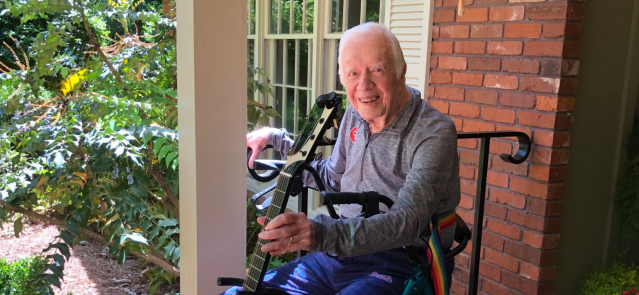Stay ahead of the curve as a political insider with deep policy analysis, daily briefings and policy-shaping tools.
Request a DemoCan David and Goliath co-exist? Georgia Senate mulls options to create more medical centers
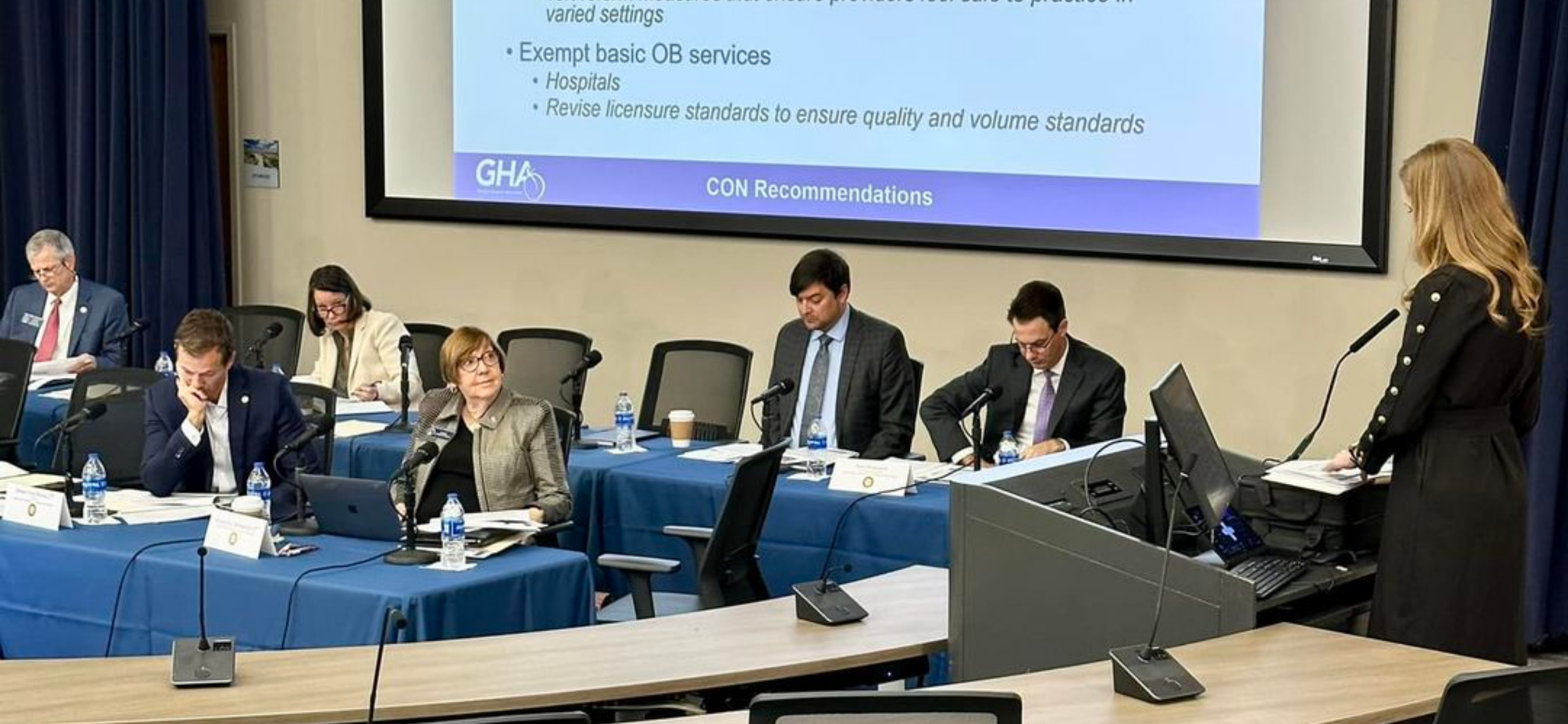
Members of the Senate Study Committee on Certificate of Need Reform hear from Anna Adams of the Georgia Hospital Association Monday in Savannah. (Credit: Kay Kirkpatrick)
At Dr. Byron Colley’s practice, children with severe dental problems wait nearly eight months for surgery due to a shortage of availability in the local hospital’s operating rooms. Yet, current state law bans the Savannah pediatric dentist from opening a surgical center because he offers multiple medical specialties.
“A lot of times we’re seeing kids for their six-month checkup before we can see them in the hospital to do their dental treatment,” Colley told State Affairs.
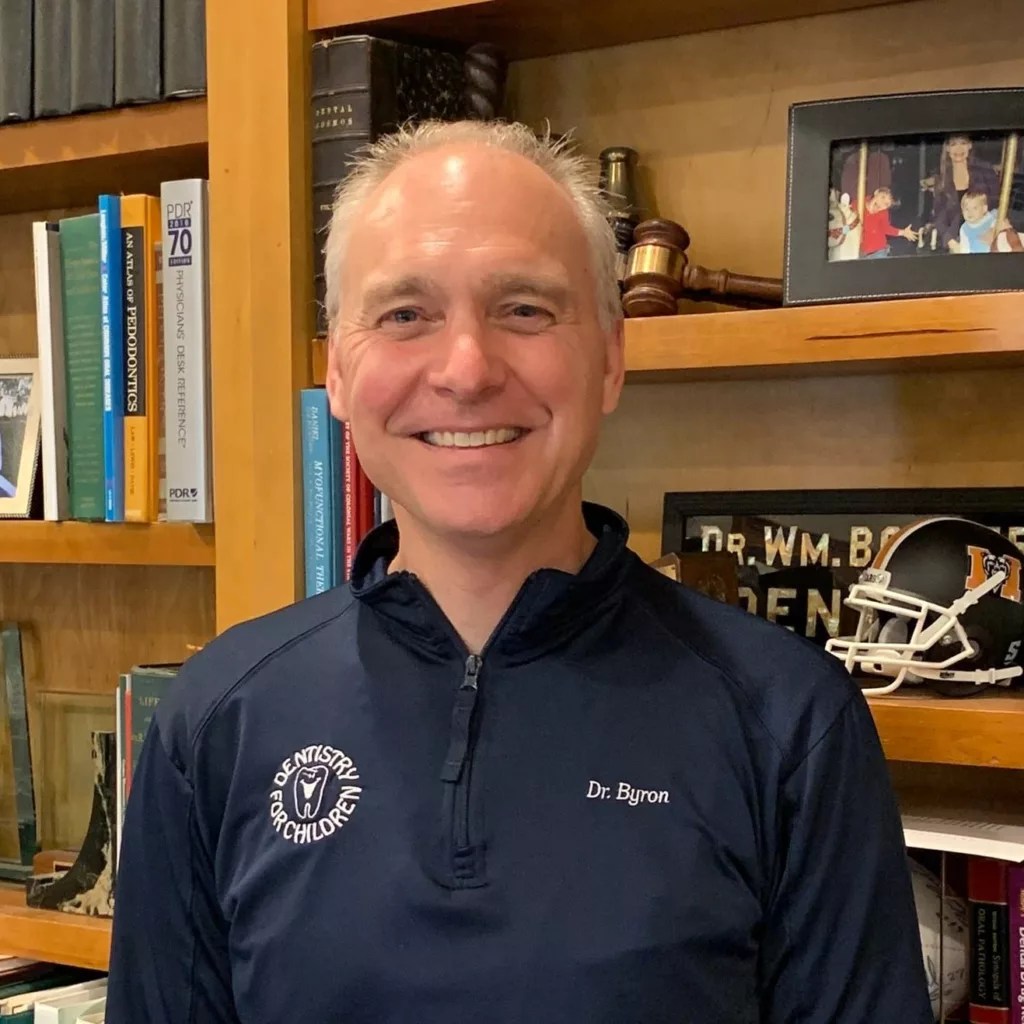
Katie Chubb tried to open a birth center in Augusta in 2021 but was denied by the state because she couldn’t work out a transfer agreement with a local hospital. In the meantime, women are leaving the state in search of such services. Chubb is suing Georgia saying the regulatory process for issuing certificates for new medical facilities is unconstitutional.
“Because of the lack of options for birth in our area, I still have to send women to local hospitals despite them opposing me,” Chubb told the Senate Study Committee on Certificate of Need Reform. “Because we don’t have a viable option for alternative birth, women are traveling to South Carolina to use birth centers because the three Georgia locations are too far.”
Colley and Chubb are just two of many who say they are having difficulty opening or providing medical services because of Georgia’s Certificate of Need law.
The law was created 44 years ago to control health care costs and cut duplication of services and unnecessary expansions. It determines when, where and if hospitals or other medical facilities need to be built. The law has proved so contentious that Georgia lawmakers are trying to decide whether to keep it, tweak it or get rid of it entirely.
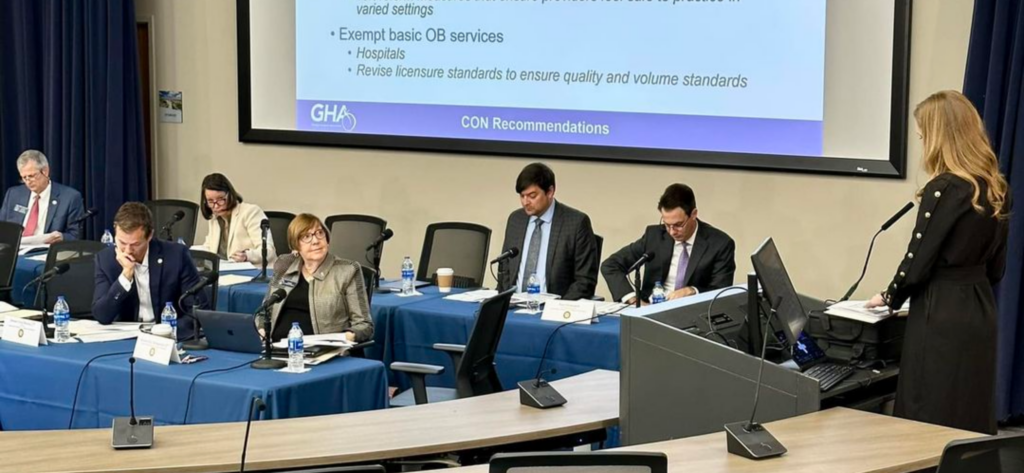
Critics say the law allows existing hospitals to block new facilities, thus creating monopolies. The law’s impact is harshest on rural Georgians who often live in medical deserts. A sudden, severe illness or routine checkups can mean traveling hours and miles to a hospital.
On Monday, The Georgia Hospital Association, a trade group of 145 hospitals in the state, weighed in at the Senate Study Commission meeting with 14 recommendations, including rewriting parts of the law to make it easier to understand.
“Our current position is to streamline and simplify. Before, it was to protect CON,” Anna Adams, the association’s executive vice president of external affairs, told the committee, which met in Savannah.
“It’s actually the first time that the hospitals have tried to be part of the process instead of just fighting about it,” committee member Sen. Kay Kirkpatrick told State Affairs. “So I think that’s a positive move but I think we’ve got a long way to go. I think that’s just the place to start.”
The committee heard nearly three hours of presentations and testimony about one of the state’s most contentious public policy issues.
The hospital association’s recommendations included:
- Updating the state health plan at least once every five years. Many of the plans are over 20 years old.
- Ending the Certificate of Need appeals process. The group suggested moving those hearings to the Office of State Administrative Hearings.
- Increasing access to pre and postnatal care in Georgia’s maternity care deserts. “So increased financial support for obstetricians, certified nurse midwives and family medicine practitioners is an important piece of this recommendation,” Adams said.
During Monday’s hearing, committee member Sen. Ben Watson, addressed the elephant in the room.
“Why do we really care whether someone wants to put up a new hospital or add more beds?” he asked Adams.
“Well, in many cases, it’s very beneficial to those community members who want to make sure they have access to those care services,” Adams answered. “We also want to ensure that there’s not an adverse enough impact to existing facilities so that certain services within the community that the new facility may not be offering would be terminated.”
To which Watson responded: “That’s sort of monopolistic and anti-competitive, right? So you have a new hospital versus an old hospital, and yet you want to protect that from a governmental standpoint. Texas and Florida don’t have that and I think they’re doing pretty well for their health care. South Carolina just did away with [Certificate of Need]. Why does the government want to be involved in regulating something like that?”
“I think if there’s a need within the community, it shouldn’t be an issue,” said Adam.
“And that’s the issue,” replied Watson. “I presume the folks that are doing the new hospital, they’ve done the numbers. They may be investors or it’s another governmental entity that’s doing that. I would hope they wouldn’t put something in there that is not a need. I mean, competition makes us all healthier. So I’m just struggling with why the governmental regulation here?”
Some speakers called for repealing the law.
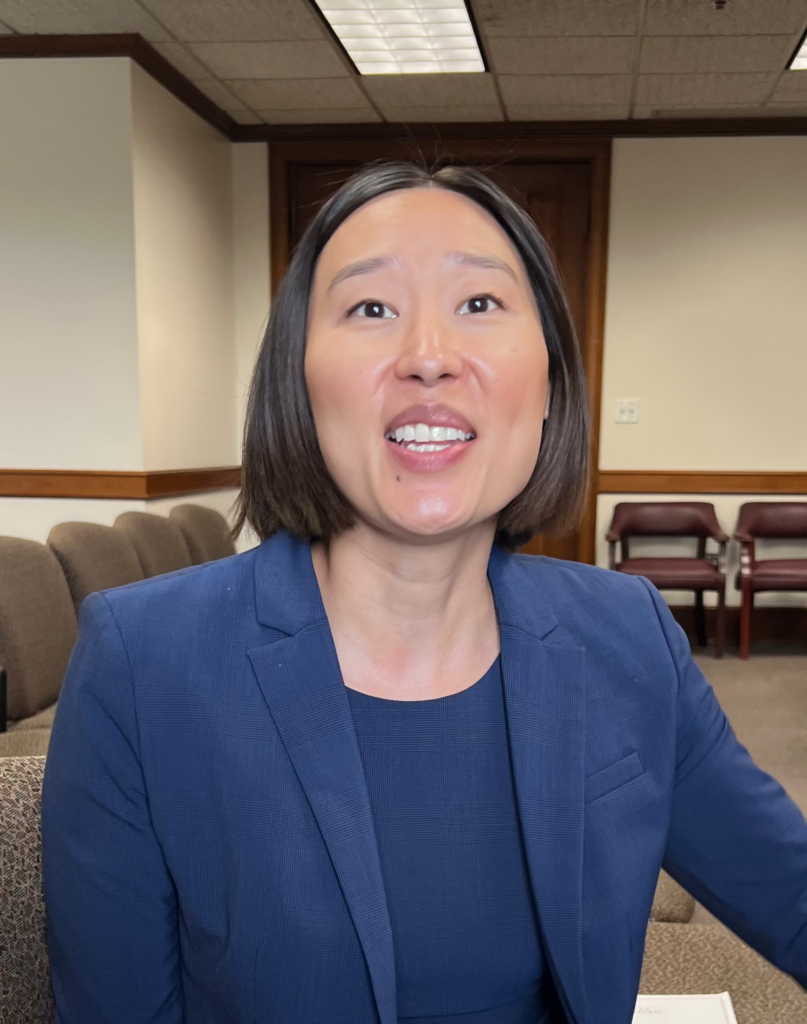
“A better idea is probably to just eliminate most or all of the Certificate of Need requirements,” said Jaimie Cavanaugh, an attorney and legislative counsel at the Institute for Justice, an Arlington, Va.-based national nonprofit that is challenging Certificate of Need laws nationwide.
She suggested the committee look at how other states decide on new facilities.
“The committee would do well to follow states like Indiana, Louisiana, Michigan, Nebraska, New York and New Jersey,” Cavanaugh said. “Those states have very robust Certificate of Need programs but they review applications without giving the opposition the chance to intervene or appeal a decision that they don’t like.”
Monday’s meeting, the committee’s third since June, drew the attendance of Lt. Gov. Burt Jones.
“I think it was telling that the lieutenant governor was there,” Kirkpatrick said. “This issue is very important to him because someone was trying to open a new hospital in his county and wasn’t able to do it because of CON. So that made him very unhappy. I think he’s trying to fix that.”

Kirkpatrick said she was “encouraged” by the hospital group’s recommendations but added “they’re still not where we need to get as far as what they have to offer.”
The committee is set to meet again at a later date.
Have questions, comments or tips? Contact Tammy Joyner on X @lvjoyner or at [email protected].
X @StateAffairsGA
Instagram@StateAffairsGA
Facebook @StateAffairsGA
LinkedIn @StateAffairs
An early primer: 8 things you need to know before the Nov. 5 election
The 2024 general election is right around the corner — 82 days, to be exact. Here are 10 things you need to know to be ready for the Nov. 5 election. In order to vote, you must be: If you missed or didn’t vote in the presidential primary in March or the May primaries, you …
Eat a bowl of peanut butter ice cream. Today’s Pres. Jimmy Carter’s 100th birthday!
Georgia’s most famous son is 100 years old today. In addition to reaching the century mark, James Earl Carter Jr. — or “Mr. Jimmy,” as friends and admirers call him — is the nation’s oldest living and oldest-lived president. State Affairs salutes Jimmy Carter through a retrospective look at the Plains, Georgia peanut farmer’s life …
How Hurricane Helene may disrupt election voting. What you should know
As if the November general election doesn’t have enough drama. Hurricane Helene — the third-deadliest to hit the mainland United States in the past 50 years — has created more Election Day hurdles for a half-dozen southeastern states, including Georgia. At least 121 hurricane-related deaths — including 25 in Georgia — have been reported so …
COMMENTARY: Happy 100th birthday, Mr. Jimmy!
“I missed you at Sunday school today,” Mr. Jimmy said to me as he entered the back door of what once was a boarding house where his parents lived when they were first married. He always stopped to speak with me in the kitchen before mingling with the nearly 45 people gathered in anticipation of …


